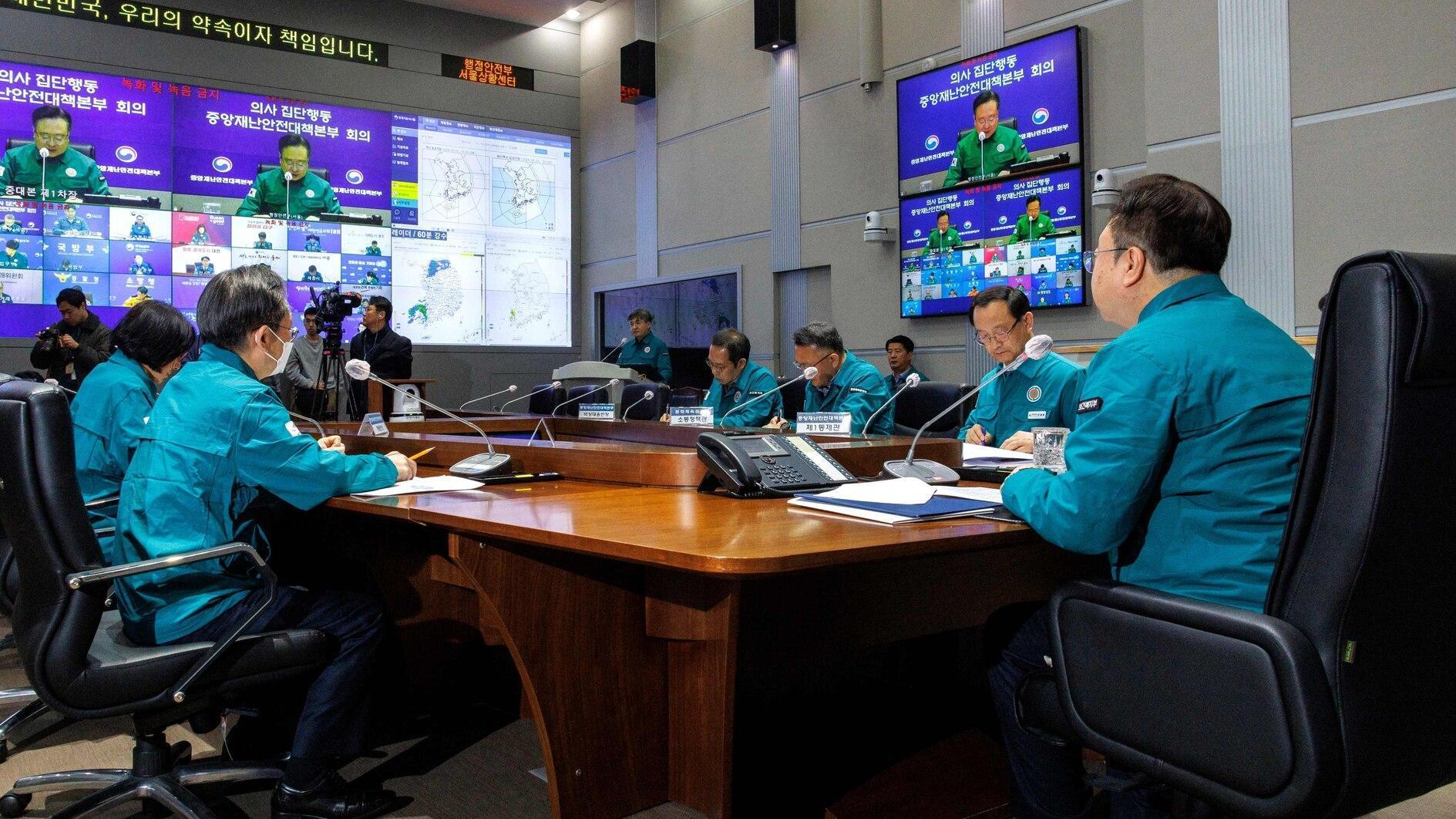
South Korea's health minister warned of a threat to the lives of patients on Tuesday after medical professors said they might join striking junior doctors engaged in a three-week-long standoff that has plunged healthcare into chaos.
Thousands of trainee medics walked off the job on February 20 to protest government plans to sharply increase the number of doctors, which it says is essential to combat shortages and serve South Korea's rapidly ageing population. Doctors say it will erode service quality.
The government has ordered medics to return or face legal action and has moved to suspend the medical licenses of those who refuse to comply, while offering incentives and setting up a hotline Tuesday to support any who defy the walkout.
This week, medical school professors at one of the country's top universities said they would resign en masse next week unless the government found a "reasonable breakthrough" to end the standoff.
"I express serious concern over the decision," Health Minister Cho Kyoo-hong said Tuesday, urging professors -- who are also senior doctors in many hospitals -- to help their striking colleagues return to work, not join them at the barricades.
"It will pose a threat to health and lives of patients," he added.
But the Medical Professors Association of Korea said Tuesday that the senior doctors were working hard to help hospitals provide essential services in the face of the work stoppages.
The professors are "hoping for a quick end" to the conflict, it said, but warned that unless the government came to the table "unconditionally" for talks, more doctors might join the work stoppages.
Seoul has mobilised military medics and millions of dollars in state reserves to ease the situation.
The government is pushing to admit 2,000 more students to medical schools annually from next year to address what it calls one of the lowest doctor-to-population ratios among developed nations.
Doctors say they fear the reform will erode the quality of service and medical education, but proponents accuse medics of trying to safeguard their salaries and social status.
Under South Korean law, doctors are restricted from striking, and the health ministry has asked police to investigate people connected to the work stoppage.
The plan enjoys broad public support, but a new poll by local media found 34 percent of people wanted the government to negotiate to end the standoff.